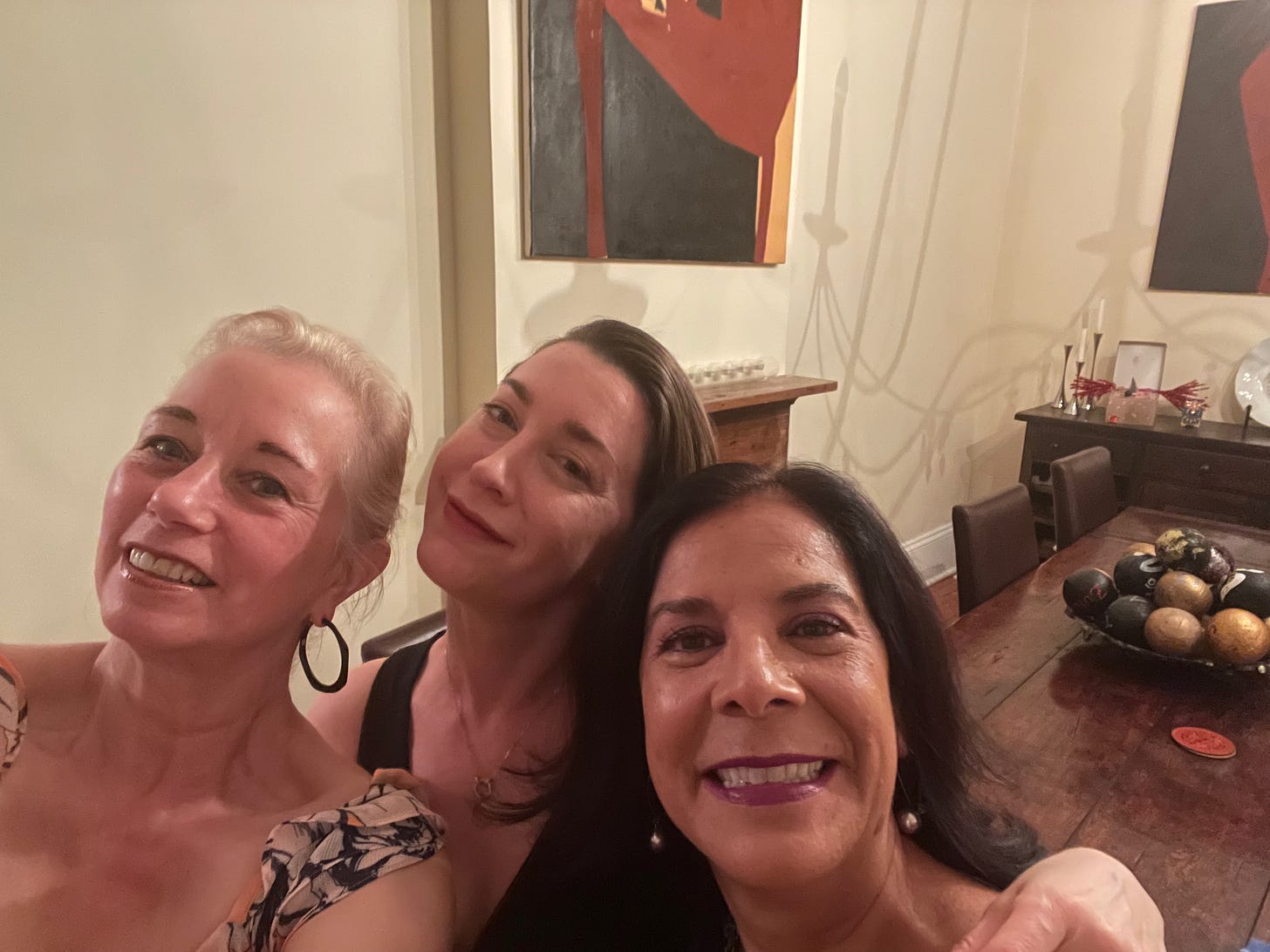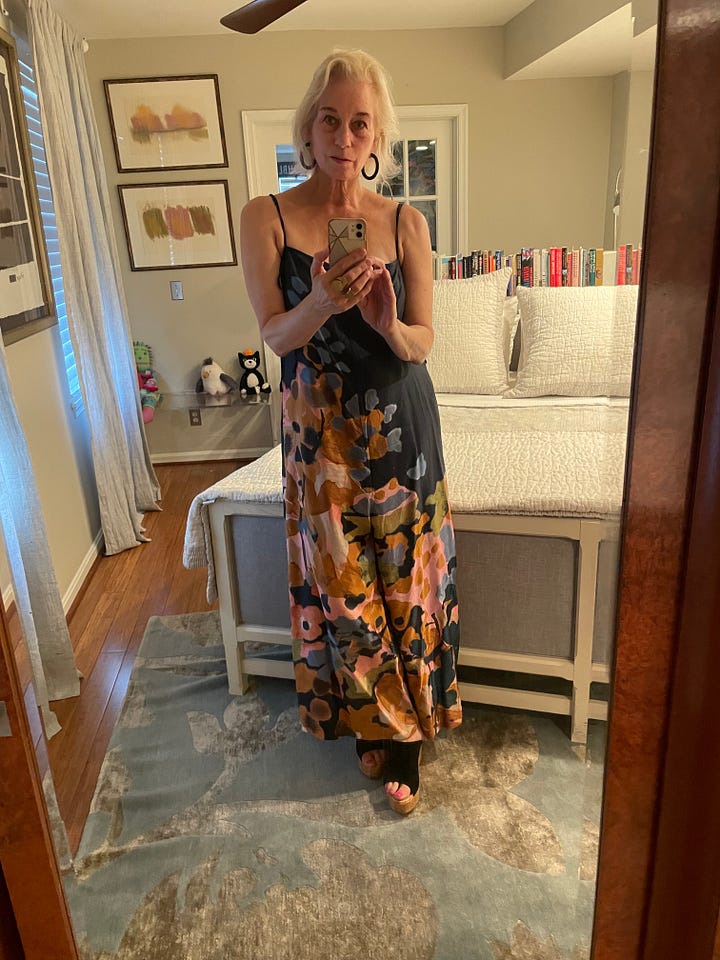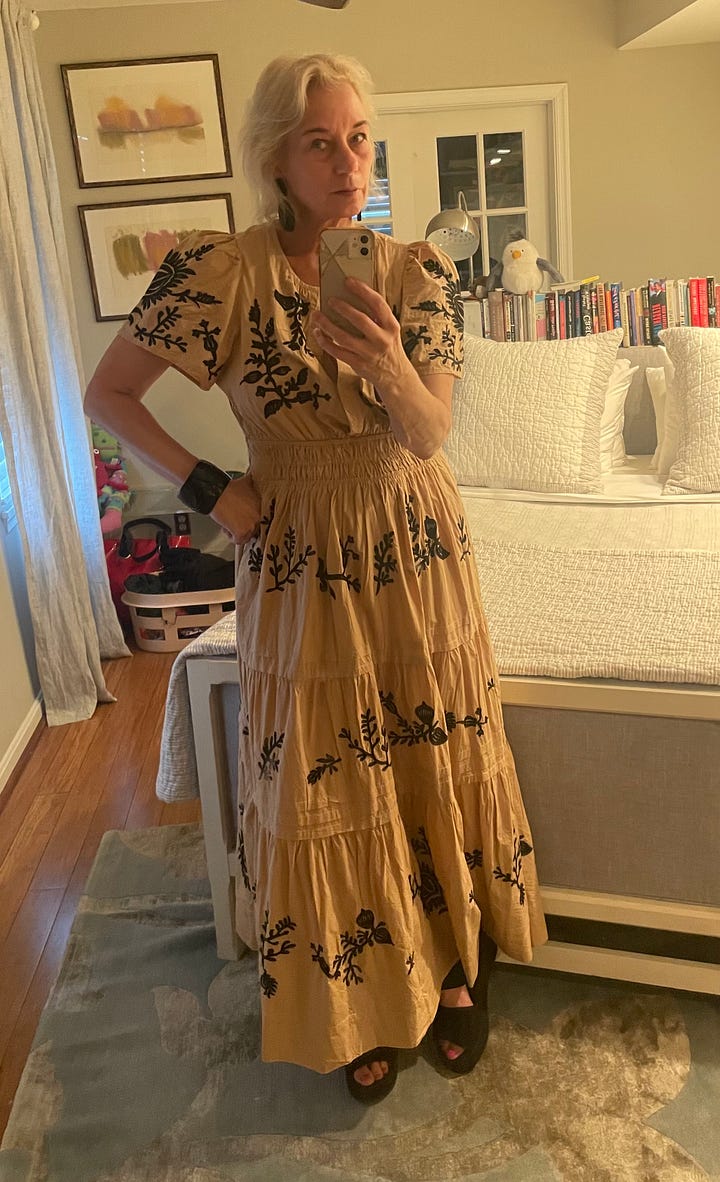In 2018, I had the good luck to join an online writers group of women from throughout the world. One of those women is Désirée Zamorano, an award-winning fiction writer and teacher (California State University-Long Beach) whom I admire extravagantly. And she was already working on what would become a sadly timely novel.
On September 9, Désirée will publish that book, Dispossessed. Preorder link here and, as always, preorders really matter. The book also was included on this list of anticipated September titles, alongside Rachel Kushner and Jami Attenberg.
Dispossessed was inspired by real — and shameful — events in U.S. history, starting with the mass deportations of Mexican nationals in the 1930s. It wasn’t an easy book to place in today’s publishing climate and Désirée ultimately decided to work with a small press, Rize.
I’m devoting this month’s newsletter to a q-and-a with Désirée, because I think this is an important and beautifully written book. And, as you’ll see in our interview, I’m disappointed that mainstream publishing is still falling short when it comes to diversity.
LL: I know a lot of writers hate this question, but I think it's valid to ask where ideas come from. How long have you known about this shameful chapter in American history? (Actually, shameful CHAPTERS.) When did you decide you wanted to write a novel about these eras?
DZ: I love talking about the genesis of my books! I’m not sure when I knew about the mass expulsions of US citizens and Mexican nationals- I can’t pinpoint it, but I’ve known about it for most of my life, and alternate between feeling enraged that it is far, far from common knowledge, and feeing resigned. At Cal State Long Beach each semester I teach students who plan to be elementary school teachers. I revel in opening the eyes of my students, to these and other historical injustices that they are not typically taught k-12. I do this not to depress or overwhelm them, but to light a fire under them to make this country, this world, a better place.
For years I had been baffled that there is not a novel out that addresses these issues. And I kept waiting to read that novel. Year after year I would teach part of this, the expatriation of Mexican Americans and Mexican nationals, alongside other events, until in 2018 I finally realized that I would have to write that book. The novelist I had been waiting for was me.
A few years ago I watched the documentary No más bebés produced by Virginia Espino that documented the sterilization of women in LA County USC Medical Center in the 1960s and 70s. I knew about this practice in other parts of the world, in other parts of the country, but in my state and county? It is appalling.
It's pretty hard to read your novel without thinking about recent and current events at the border between the US. and Mexico. Did you make the conscious decision to use a historic event that would resonate in the present? Do you think historical novels sometimes help people deal with contemporary issues that they're having trouble processing?
I began writing this novel in 2018 — a few months later our government began separating families at the border. I was aghast by the timeliness of my novel. I wanted this book to be relevant, but not in this way.
The reality is that from the inception of our country we’ve had outrageous “immigration policies.” Native Americans, indigenous people were labeled “domestic foreigners” and didn’t have the right to vote until 100 years ago. Also, people may or may not be aware of the Chinese Exclusion act. In 1923 the Supreme Court ruled "the intention of the Founding Fathers was to 'confer the privilege of citizenship upon the class of persons they knew as White.'” Citizenship and whiteness are still closely linked in the minds of many, which is precisely why there’s a fence on the southern border and not the northern border (although it is documented that more than any other nationality, Canadians overstay their visas.) Nobody tends to be worried about a “mass invasion” from the north. This is all about skin color.
Clearly, I’m off on a tangent, but these are the issues I think and teach about every semester, and the issues I was thinking about as I wrote this book.

Do you have any personal connection to the material? Did the deportations affect anyone you know, or the parents, grandparents of people you know?
In short, no personal connections, besides the throbbing outrage.
Can you tell me about what research you did, and what shaped some of your artistic choices -- the decision to center the story in a male POV, for example.
From the 1930s to the 1950s an estimated 2 million people, Mexican Americans and Mexican nationals, were expelled from this country. Because of the famous line, “A single death is a tragedy, million deaths is a statistic” I knew that this history would have to be portrayed through the life of someone buffeted and impacted by this historical event.
Up to this point, all of my novels, published and unpublished, centered on strong women characters. I set myself the challenge of writing about a good man. There are good men in my life, my son, my husband, for example, and as I posed this challenge to myself, I knew my character had to be surrounded by strong, loving women.
Research wise: there are academic texts- which gave the background and texture of the historical setting.
Decade of Betrayal by the scholar Francisco Balderrama
Anything but Mexican, by Rodolfo Acuña
Whitewashed Adobe by William Deverall
From Out of the Shadows by Vicky L Ruiz
And one beautiful text of photographs, that helped me capture the community of Chavez Ravine:
Chavez Ravine: 1949 by Don Normark1
I confess, I was nervous about starting your book because I thought it was going to be unrelentingly grim -- a child ripped away from his parents seemed like a set-up for a book like The Painted Bird. Yet the fact that Manuel's early years were among kind, loving people actually made his situation more poignant. Could you talk about that choice? In one of our email exchanges, you mentioned the importance of "dignity."
When I wrote my first published novel, The Amado Women, it was to represent the Mexican American women I knew and was surrounded by. Aspirational and complex- a far cry from the pervasive misrepresentation and lack of representation that masks our reality.
When I started writing this novel, there was a bloviating blowhard directly maligning my demographic. Representation of the Latinx demographic had barely moved. And yet, in the communities where I live and teach, our reality is quite different. I wanted the portrayal of what I could see on a daily basis: the dad who loves his child, the husband who worries about his wife, the families quietly struggling to make a living, build a home.
I also wanted us seen. We’ve been here for a hundred years, and we’ll be here for the next hundred years.
Five years ago, a novel which centered on a Mexican woman immigrating to the U.S. became a huge publishing hit and then was subject to quite a bit of backlash for its inauthenticity and unacknowledged borrowing from other works. There were hashtags like #PublishingSoWhite and calls for more meaningful diversity within the industry. Yet it's my understanding that you fought really hard to find a publisher for this book. What was your experience while shopping it? I'd really appreciate any information you'd like to share about this book's path to publication.
At CSULB we discuss “whose stories are told” and “who gets to tell these stories.” Publication was quite a challenge for me, during the extensive search for an agent. Some agents were ignorant and skeptical of the premise. Even with positive reception, nobody knew what to do with this book. I am grateful that a small press offered to take me on.
Typical or atypical, this was a hard road. By contrast, a dear friend of mine, Marcela Fuentes, had her debut novel swiftly snapped up, and captivated the literary world this summer with her debut novel Malas, while Myriam Gurba’s fearless, searing essay collection Creep was a National Book Award Circle finalist.
Ni modo! Loosely translated- what can you do?
You're a terrific writer who has a solid body of work, but you haven't quite broken out yet to a big audience. I really admire your determination to get your work out there. All writers face rejection, disappointment, even existential crises. What keeps you going?
I’m gonna frame those opening words. Quote you and plaster it all over social media!
I absolutely have existential crises. Before my first novel was published, my disappointment was so keen I prayed, “God, take this ambition away from me.” Instead, I found Dagoberto Gilb’s collection of essays Gritos, which articulated so many things for me, and Carolyn See’s Making a Literary Life with her recipe for a writing life. I began to use her recipe, including charming notes. I once even heard back from Margaret Atwood!
Currently I am grateful and gratified to be part of multiple literary communities. That fellowship fuels me and helps me feel as if I belong. (See the doubt! “As if I belong”) The road to publication for Dispossessed was at times so dispiriting, I thought I might never write another novel. And yet, I count my successes-The Amado Women will be re-released by Lee and Low Press in 2025, and the University of Nevada Press will be publishing my collection of short stories in 2026.
What keeps me going is the certainty that I have little control over the world at large- but complete control over the words I put on the page. I’m so old school I’m going to reference Covey’s 7 Habits of Highly Effective People: the classes I teach and the words I put on the page are where my area of concern and area of influence overlap. It’s where I can make the most impact. That’s where I put forth all my effort.
Do your students inspire you? Do you ever find yourself telling yourself the same things you've said to them?
My students inspire me every semester by committing to enter the incredibly challenging field of teaching.
When I talk to upcoming writers, I tell them exactly what worked for me: Find yourself a cheer squad. Surround yourself with people who believe in your goals, and ditch/avoid those who don’t.
I also share a quote with them, which I use when I despair.
Robert Bresson’s words fuel me with hope and kick start my creative mind:
“Make visible, that which without you, might never be seen.”
Read/Reading: Dispossessed, Désirée Zamorano (duh); We Are Watching, Alison Gaylin; Number Go Up, Zeke Falk (audio); I’m Mostly Here to Enjoy Myself, Glynnis MacNichol (audio). The week one curriculum for Contemporary Modern Poetry.
Reread: The Many Loves of Dobie Gillis, Max Shulman. It hasn’t aged as badly as I feared, but Dobie’s father’s belief that he’s living in a matriarchy is really something.
Me, Me, Me. I contributed another column to Oldster, about my confusing relationship with bed trays. Also CHECK OUT THESE SHOULDERS, courtesy of Todd Bauer at Optimal Health Alliance.


Désirée’s descriptions of Chavez Ravine are achingly gorgeous.






Sorry about the weird type layered over the cover; my computer has been doing some weird things as of late.
Thanks I'll push our library to buy copies. I have pull (I think) : ) Libraries love titles like these and I hope Ms. Zamorano's publisher or distributor is making it known. Always curious about this end of the market